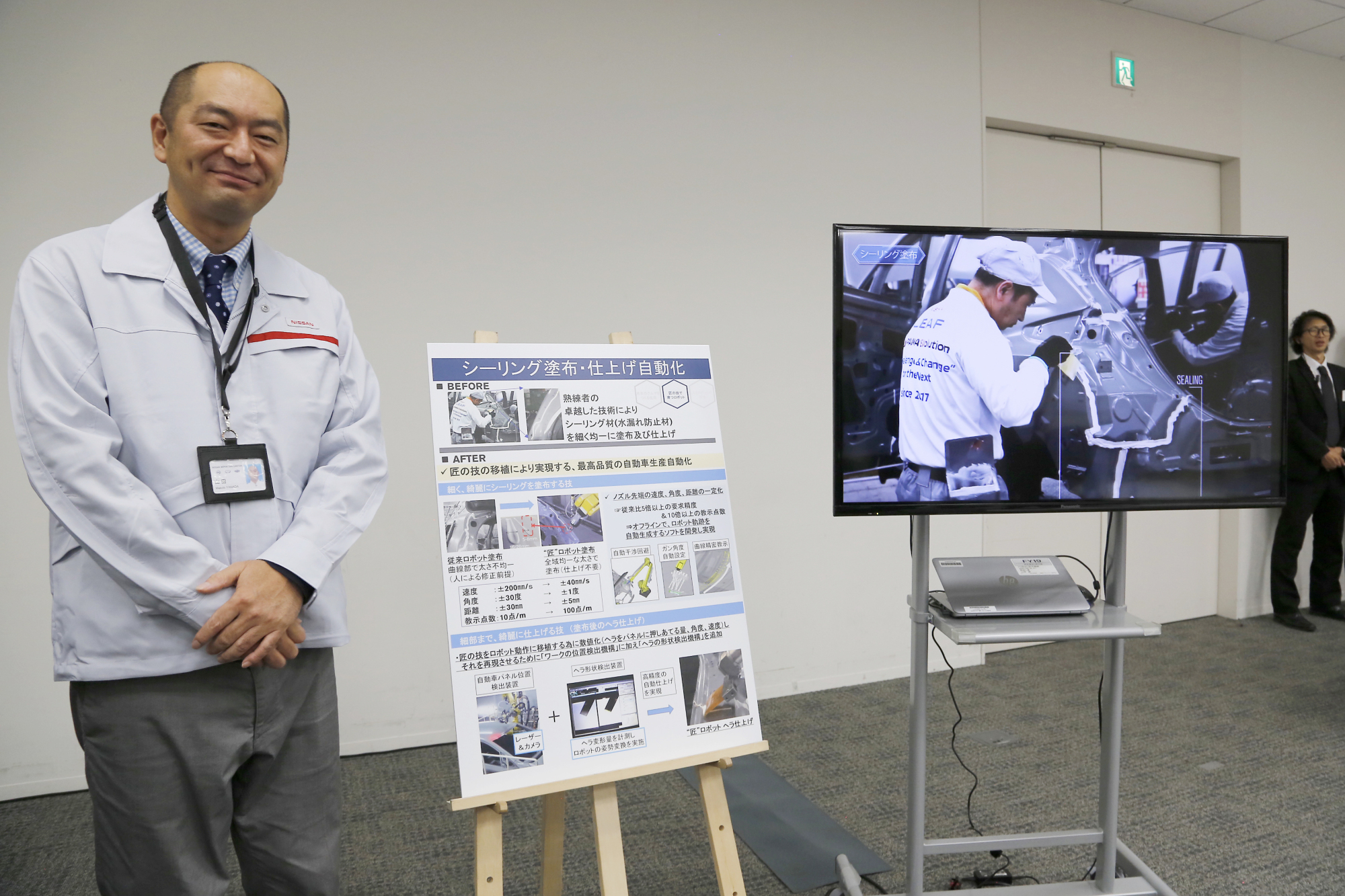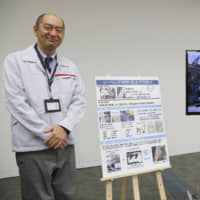Nissan Motor Co. said Thursday it will invest ¥33 billion ($301 million) to introduce advanced manufacturing technology at a plant in Japan to tackle the challenges of producing next-generation vehicles such as electric, intelligent and connected cars.
Nissan plans to introduce the manufacturing technology at its factories around the world, including those of alliance partners Renault SA and Mitsubishi Motors Corp., following the initial investment at its plant in Tochigi Prefecture in 2020.
"A leap in Nissan's production technology will be key in enhancing our (overall) technology as vehicles become more complex and advanced," Nissan Executive Vice President Hideyuki Sakamoto told a news conference at the automaker's headquarters in Yokohama.
The new system involves automated pallets that mount entire powertrains, whereas assembly line staff currently install multiple components, such as batteries and motors, in sequence.
Such universal pallets will enable Nissan to assemble different types of vehicles, whether electric or gasoline-powered, in one process, the company said.
Sakamoto said automating the process with robots will lessen the physical burden on assembly line staff who are aging and also promote diversity in the workforce by allowing women to work at factories.
Nissan will also have robots take over the process of sealing vehicle body seams to prevent water intrusion. The robots can reproduce the precise movements and gestures of trained workers, Nissan said.
"The change to manufacturing is not aimed at cutting the workforce but rather lessening the complex and burdensome work that is increasingly required," Sakamoto said. "This will free workers to perform more valuable jobs such as developing and planning new models."




